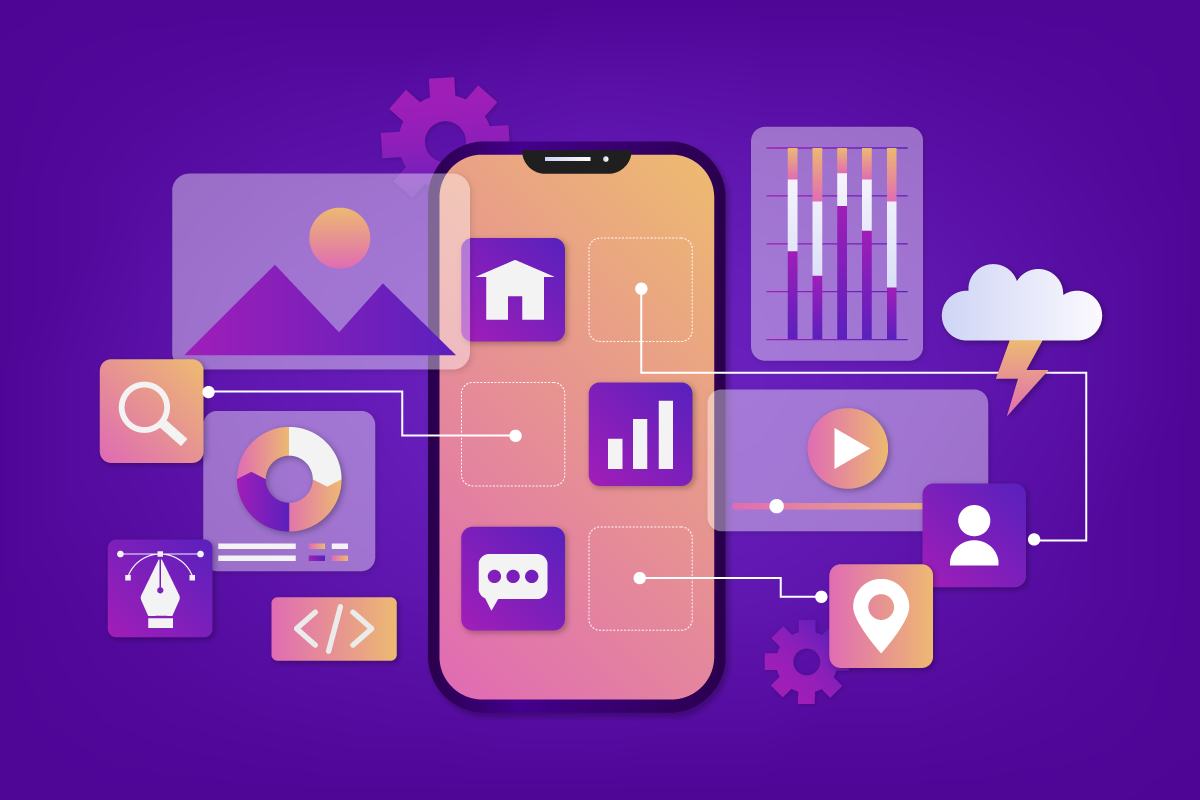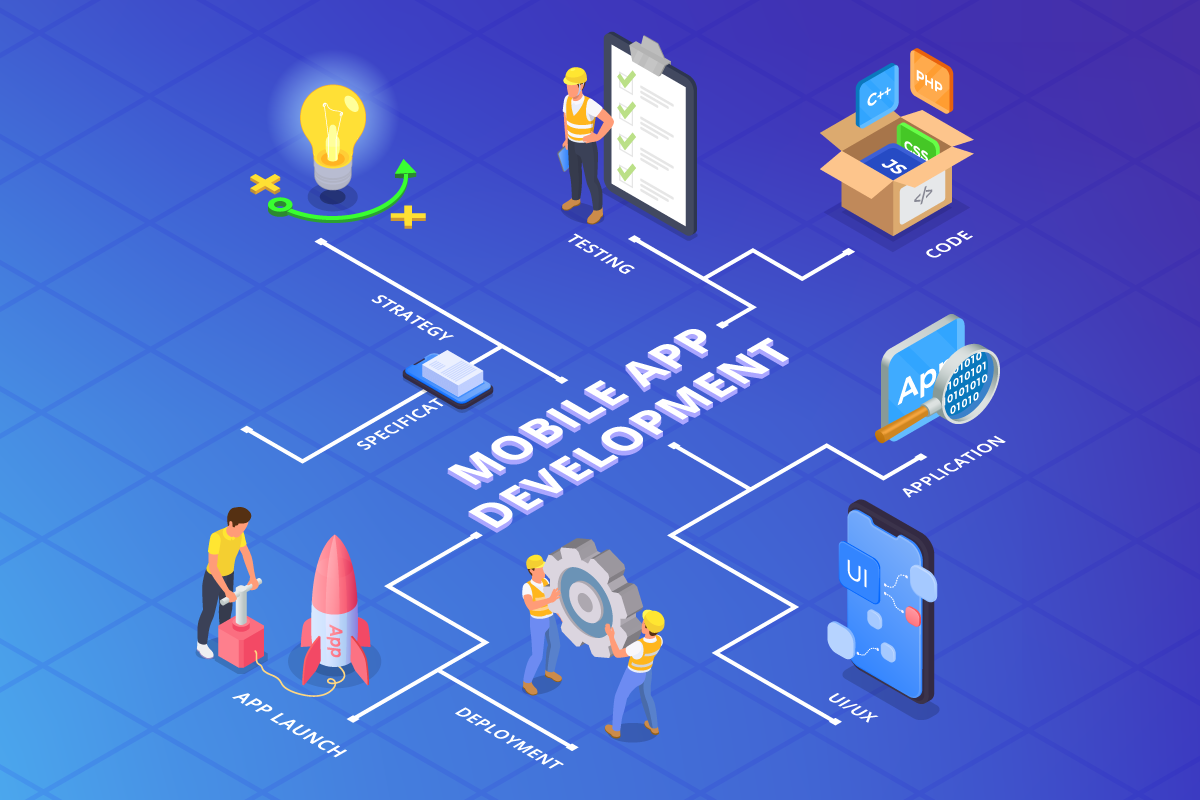
In today’s hyper-connected world, mobile apps have become an inseparable part of our daily lives. From ordering food to managing finances, staying connected, or finding entertainment, these pocket-sized powerhouses offer a convenient and personalized experience. For businesses, this mobile revolution presents a unique opportunity to reach new audiences, engage customers more effectively, and ultimately drive significant results.
Why Invest in Mobile App Development?

Here are some compelling reasons why businesses, regardless of size or industry, should consider investing in mobile app development:
1. Enhanced Customer Reach:
Mobile apps allow businesses to connect with a vast and diverse audience. With billions of people using smartphones globally, a well-designed app can put your brand directly in the hands of potential customers, expanding your reach beyond geographical limitations.
2. Improved Customer Engagement:
Mobile apps provide a direct communication channel with your customers. Push notifications, in-app messaging, and personalized content allow for real-time engagement, fostering stronger brand loyalty and repeat business.
3. Increased Brand Awareness:
A well-designed app acts as a constant reminder of your brand. Engaging features and a user-friendly experience can keep your business top-of-mind for customers, leading to increased brand awareness and recognition.
4. Streamlined Customer Experiences:
Mobile apps can simplify and enhance customer journeys. Imagine booking appointments, completing transactions, accessing loyalty programs, or getting customer support – all from the convenience of a mobile app. This translates to greater customer satisfaction and loyalty.
5. Data-Driven Insights:
Mobile apps generate valuable data about user behavior, preferences, and purchase history. These insights can be used to personalize the user experience, target marketing campaigns more effectively, and make better business decisions.
6. Competitive Advantage:
In today’s competitive landscape, having a well-designed mobile app can differentiate your business. It showcases your commitment to innovation and customer service, giving you a competitive edge over businesses that rely solely on traditional methods.
Understanding the Mobile App Development Process

Developing a successful mobile app is a collaborative and multi-step process. Here’s a simplified breakdown of what you can expect:
1. Concept & Planning:
This stage involves defining your app’s purpose, target audience, functionalities, and key features. It’s crucial to clearly define the problem your app aims to solve and the value it will offer to users.
2. Design & User Experience (UX) Development:
This phase focuses on creating a user-friendly and visually appealing interface. Skilled designers will craft wireframes and mockups to ensure a smooth and intuitive user experience, making your app easy to navigate and use.
3. App Development:
Here’s where the coding magic happens. Developers will translate the design and functionalities into a working mobile application, either for native platforms (iOS or Android) or a hybrid approach.
4. Testing & Quality Assurance (QA):
Rigorous testing is crucial to ensure your app is bug-free, performs optimally, and delivers a seamless user experience. This includes testing on various devices and operating systems.
5. Deployment & Launch:
Once everything is tested and approved, your app will be submitted to the respective app stores (Apple App Store or Google Play Store) for review and final launch.
6. Post-Launch Support & Maintenance:
The journey doesn’t end with launch. Ongoing monitoring, bug fixes, updates, and feature enhancements are essential to maintain a robust and user-friendly app.
Key Considerations for Mobile App Development
Before embarking on your mobile app development journey, here are some essential points to consider:
- Target Audience: Clearly define your ideal user. Understanding their needs, wants, and mobile behavior is vital for creating an app that resonates with them.
- App Budget: Be realistic about your budget and resources. Mobile app development can range from cost-effective to resource-intensive depending on features and complexity.
- Platform Choice (Native vs. Hybrid): Native apps offer superior performance and customization but require separate development for each platform (iOS and Android). Hybrid apps are a more cost-effective option, but functionality may be limited.
- App Monetization Strategy: Consider how you will generate revenue from your app. This could include in-app purchases, subscription models, targeted advertising, or a combination of these.
Conclusion: Reach New Heights with Rakumura IT Solutions
Mobile app development presents businesses with a transformative opportunity to reach new audiences, drive customer engagement, and achieve significant growth. If you’re ready to leverage the power of mobile technology but need an experienced guide, consider partnering with Rakumura IT Solutions.
Our team of expert developers and designers will work closely with you to understand your business goals, define the perfect app strategy, and craft a mobile app that delivers exceptional results. Contact Rakumura IT Solutions now!!

